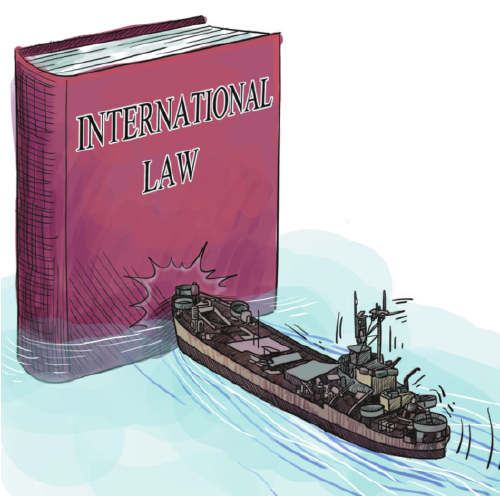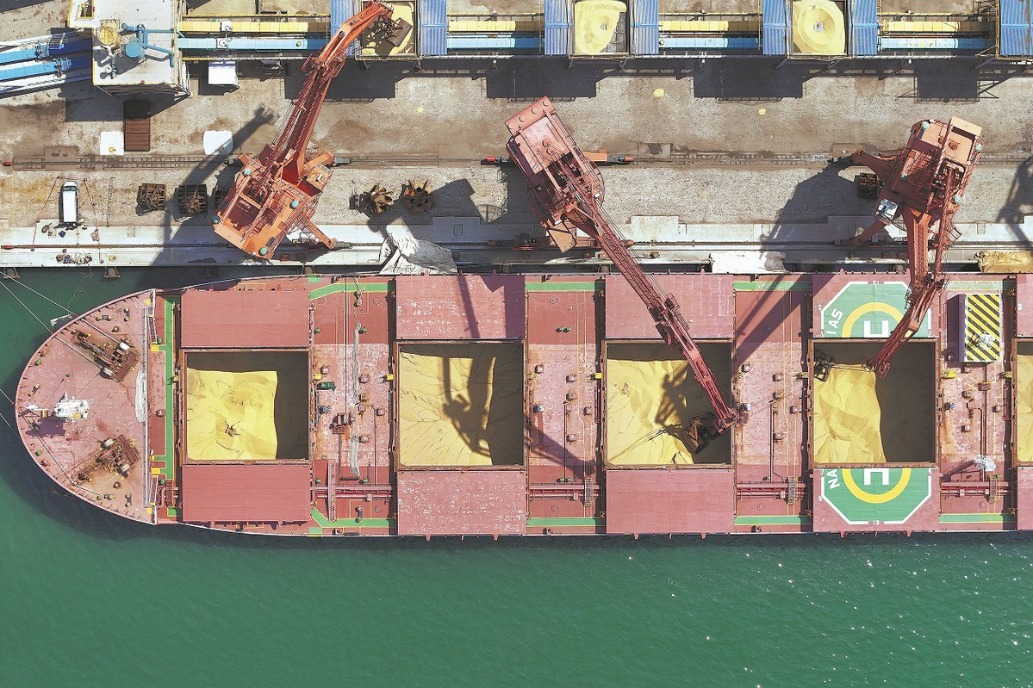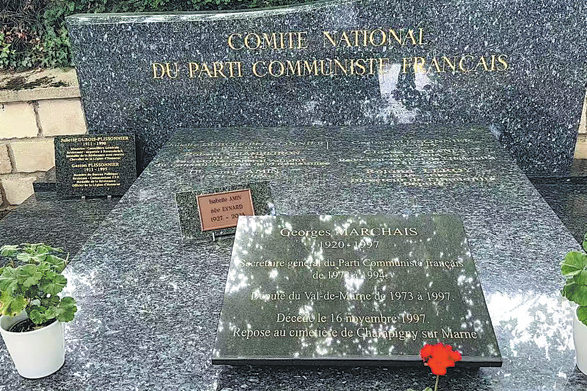UNCLOS dispute settlement: Triumphs, trials, and tomorrow


Recently, there has been some discussion in the arena of international public opinion and in international legal circles about the dispute settlement mechanism established by the United Nations Convention on the Law of the Sea (UNCLOS). At the same time, some think tanks in the United States are encouraging the Philippines to utilize a third-party mechanism to initiate compulsory arbitration against China under the (UNCLOS). In that regard, it would be useful for the international community to understand China's position and policy by sorting out and answering questions about how to look objectively and fairly at the dispute settlement mechanism established by the Convention, and what achievements, problems and challenges it faced.
The dispute settlement mechanism established by the UNCLOS is not merely a legal construct. It reflects the international community's commitment to peace, justice, and the rule of law in the governance of the oceans. At its core lies the dispute settlement mechanism, a system designed to ensure that conflicts arising from the interpretation or application of the Convention are resolved peacefully and equitably. In a world where maritime disputes can threaten regional stability and global security, the UNCLOS dispute settlement mechanism stands as a beacon of hope—a structured pathway to dialogue and resolution.
The UNCLOS dispute settlement mechanism is a testament to the ingenuity and pragmatism of the international community. Born from extensive negotiations, it represents a compromise between diverse legal traditions, political interests, and historical practices. This mechanism is not a one-size-fits-all solution; rather, it is an innovative and balanced effort to address the complexities of maritime disputes, many of which carry significant political sensitivity.
One of its most remarkable features is its flexibility. Recognizing the diversity among states—each with its own legal culture and preferences—UNCLOS offers a menu of dispute resolution options. The multiplicity of fora respects the sovereignty and individuality of states, allowing them to select the method that aligns with their comfort and trust.
This flexibility is complemented by a balanced approach to compulsion and cooperation. The mechanism prioritizes negotiation and consultation as initial steps. Only when these efforts fail do compulsory procedures with binding outcomes come into play. This structure reflects the drafters' awareness of the political sensitivity of maritime disputes—issues like maritime delimitation or sovereign rights can inflame national sentiments—and their determination to create a practical, operable system through interest balancing.
In essence, the mechanism bridges the gap between law and politics, using legal pathways to address highly sensitive issues. It embodies the international community's resolve to prioritize peace over conflict, offering a framework that is both innovative in its design and balanced in practice.
Central to the UNCLOS dispute settlement mechanism is the principle of state consent, a bedrock of international law. The mechanism's legitimacy and effectiveness hinge on the voluntary agreement of states to submit to its jurisdiction. This consent is typically expressed through ratification of the Convention and, in some cases, specific declarations under Article 287 regarding preferred dispute resolution fora.
The principle of state consent enhances the mechanism's credibility. When states willingly participate, as seen in some cases over maritime boundary disputes, the process tends to yield effective and enforceable outcomes. The ITLOS or tribunal's decision in the cases not only settled the long-standing disputes but also reinforced the parties' confidence in the system, demonstrating the mechanism's potential when consent is clear and ground.
However, the reliance on state consent also presents challenges. In cases where consent is disputed, the mechanism's effectiveness can be called into question. The South China Sea arbitration is a prominent example. The Philippines invoked compulsory arbitration under Annex VII, but China rejected the tribunal's jurisdiction, arguing that the dispute involved sovereignty and maritime delimitation—issues it claimed were excluded from compulsory settlement under Article 298. Despite China's non-participation, the tribunal issued the award favoring the Philippines. Yet, China's refusal to recognize the ruling has highlighted the limits of enforcement when consent is contested.
The UNCLOS dispute settlement mechanism has undeniably advanced the peaceful resolution of maritime disputes and the evolution of international law. Over the decades, it has facilitated the settlement of conflicts, from fisheries disputes to boundary delimitations, reinforcing the international community's commitment to fairness and justice.
One of its most significant contributions is its role in interpreting and clarifying the Convention's provisions. For instance, In the Bay of Bengal Case, ITLOS applied the three-stage methodology as the approach for delimiting maritime zones, harmonizing state practice. In the Saiga Case, ITLOS ruled that coastal states must exercise enforcement powers reasonably and proportionally, safeguarding freedom of navigation. In its Advisory Opinion on Seabed Activities, ITLOS elaborated and explained the rights, obligations and responsibilities of the sponsoring State, clarifying some ambiguities in the provisions relating to the development of international seabed resources.
However, its achievements are accompanied by controversies. Disputes involving mix elements often lead to jurisdictional challenges, and the mechanism's ability to handle these complexities is sometimes questioned, with outcomes varying in acceptance among states.
The mechanism's handling of incidental jurisdiction and the identification of a dispute's substantive nature sometime fuels disagreement. The controversies reflect the inherent difficulty of applying a uniform legal framework to diverse, politically charged contexts. Nevertheless, the existence of a structured process for addressing such issues underscores the mechanism's value, even if not all decisions are universally accepted.
A pivotal aspect of the UNCLOS dispute settlement mechanism is the role of judicial activism—the tendency to interpret the Convention expansively, sometimes beyond its literal text. Since international courts or tribunals cannot refuse to hear cases on the grounds of no legal provisions, they may also proceed from judicial activism and try to find specific legal basis. It is well established that treaty interpretation should not add new meanings to the legal norms, but the existence of the "judicial law-making" has been a fact in practice. This phenomenon is a double-edged sword, offering both opportunities and risks.
On one hand, judicial activism serves as a bridge between the Convention's text and its practical application. UNCLOS could not foresee every modern challenge, such as advances in deep-sea mining or climate change impacts. Tribunals have stepped in to fill these gaps, as seen in ITLOS cases addressing marine environmental protection. Such interpretations ensure the Convention remains a living instrument, adaptable to contemporary needs.
On the other hand, excessive judicial activism risks crossing the boundary from interpretation to judicial lawmaking, threatening the stability and predictability of the international legal order. While judicial activism is an objective reality in international adjudication, it should not become the primary driver of legal development. Instead, the international community should pursue negotiated amendments or supplementary agreements to address gaps, ensuring that changes reflect the collective will of states rather than the discretion of judicial bodies. A balanced approach—rooted in the Vienna Convention on the Law of Treaties' principles of interpretation—is essential to preserve the mechanism's integrity.
Looking ahead, the mechanism's future depends on a collective resolve to strengthen its foundations—fostering compliance, refining its processes, and ensuring judicial restraint. By upholding and enhancing the UNCLOS dispute settlement mechanism, we can ensure they remain a realm of cooperation and peace rather than conflict and division.
Ding Duo is director of the Center for International and Regional Studies at the National Institute for South China Sea Studies.
The views don't necessarily reflect those of China Daily.
If you have a specific expertise, or would like to share your thought about our stories, then send us your writings at opinion@chinadaily.com.cn, and comment@chinadaily.com.cn.


































